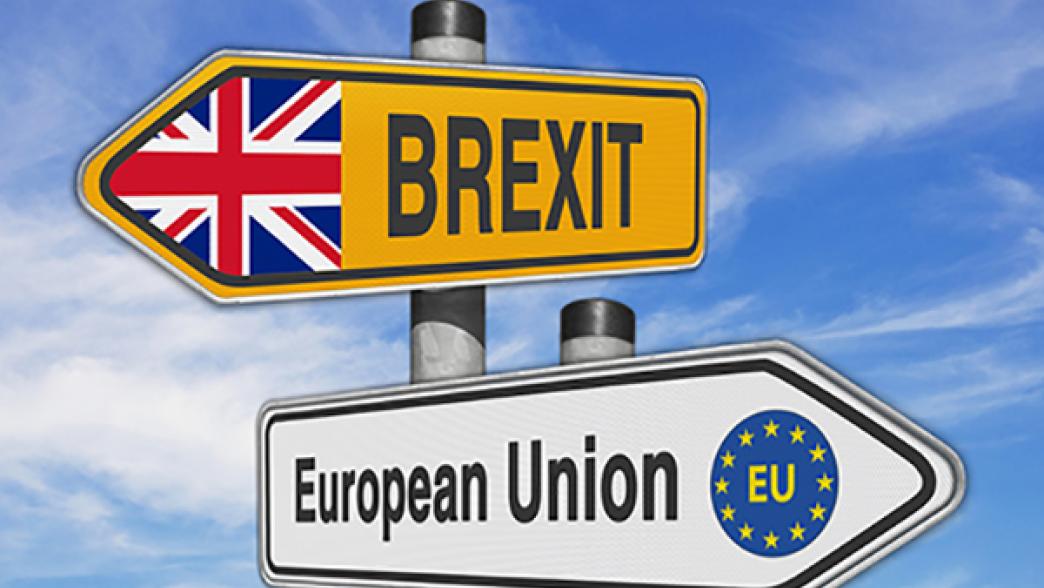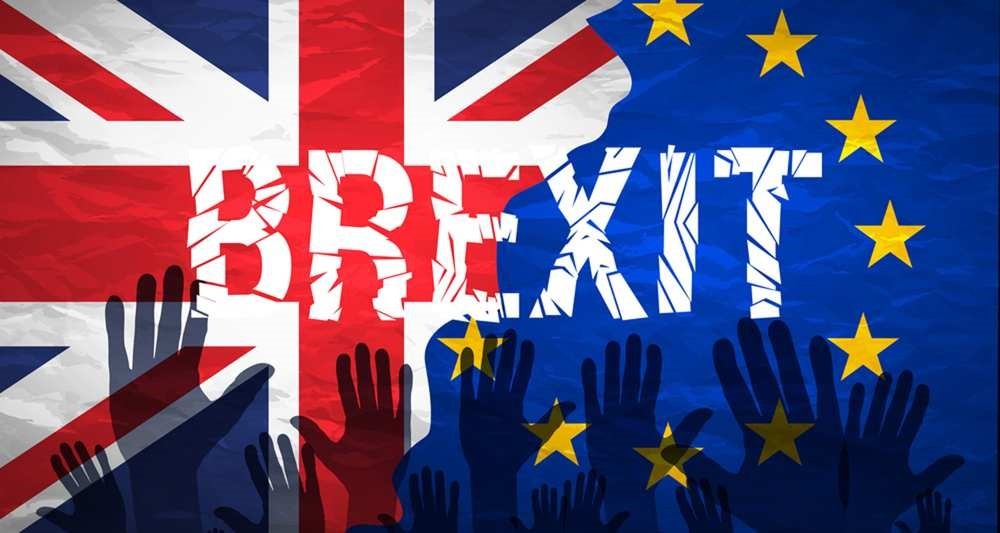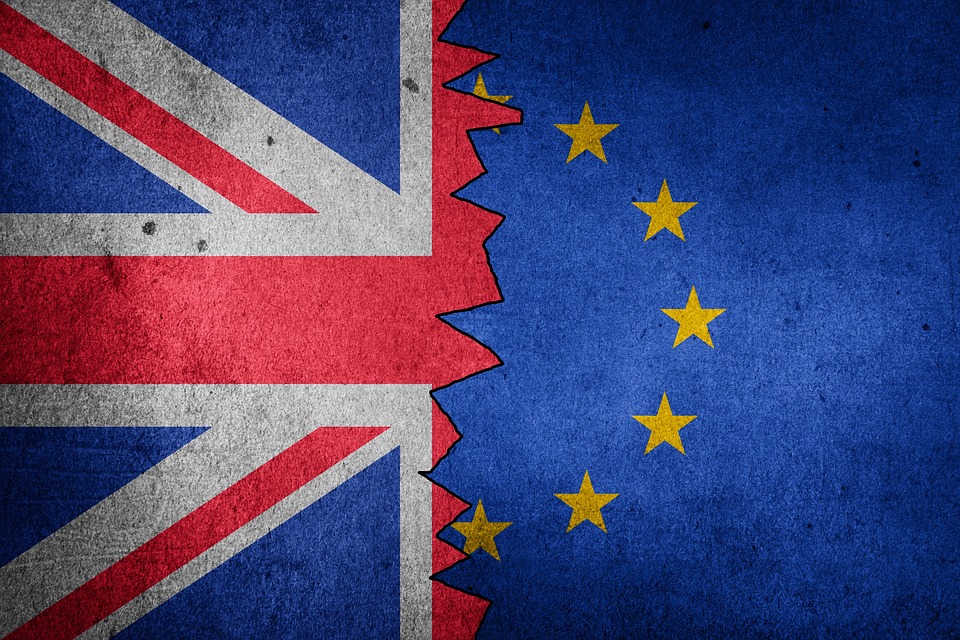Brexit, short for “British Exit,” refers to the United Kingdom’s decision to leave the European Union following a 2016 referendum.
This monumental event marked a significant shift in European politics, economics, and international relations. The historical context of Brexit traces back to the UK’s uneasy relationship with the EU, characterized by debates over sovereignty, immigration, and economic policies.
For international businesses operating in Europe, Brexit represents a watershed moment with far-reaching implications.
The European Union has long served as a cornerstone of regional economic integration, offering businesses access to a vast single market of over 450 million consumers.
However, the UK’s departure from the EU has disrupted established trade and regulatory frameworks, introducing uncertainty and complexity for businesses across various sectors.
The importance of Brexit for international businesses cannot be overstated. It has triggered a series of challenges ranging from trade barriers and regulatory divergence to supply chain disruptions and financial uncertainty.
As businesses navigate this new reality, understanding the implications of Brexit and developing strategic responses are essential for maintaining competitiveness and ensuring long-term viability in the European market.
Background of Brexit

Brexit, a portmanteau of “Britain” and “exit,” refers to the United Kingdom’s decision to withdraw from the European Union, following a referendum held on June 23, 2016.
The referendum saw 51.9% of voters opting to leave the EU, while 48.1% voted to remain. This outcome reflected deep divisions within British society regarding the country’s relationship with the EU.
Explanation of What Brexit Entails
Brexit entails disentangling the UK from the various political, economic, and legal structures of the European Union.
This process involves renegotiating trade agreements, revising domestic legislation, and redefining the UK’s relationship with the EU and other international partners.
Key aspects of Brexit include:
- Customs Union and Single Market: The UK’s departure from the EU means it will no longer be part of the EU Customs Union and Single Market. This change has significant implications for trade, as it introduces customs checks, tariffs, and regulatory barriers between the UK and the EU.
- Immigration Policy: Brexit allows the UK to regain control over its immigration policy. This means implementing new rules for EU citizens wishing to live and work in the UK and vice versa.
- Regulatory Autonomy: With Brexit, the UK can diverge from EU regulations and standards, allowing it to pursue its own regulatory agenda in areas such as product standards, environmental protections, and financial services.
- International Trade: Brexit enables the UK to negotiate its own trade deals with countries outside the EU. This presents both opportunities and challenges for British businesses seeking to expand their global market access.
Timeline of key events leading up to Brexit:
- January 2013: Prime Minister David Cameron promises an in-out referendum on EU membership if the Conservative Party wins the general election.
- June 2016: The UK holds a referendum on EU membership, resulting in a 51.9% vote to leave the EU.
- March 2017: The UK triggers Article 50 of the Treaty on European Union, formally beginning the process of leaving the EU.
- November 2018: UK Prime Minister Theresa May’s government negotiates a Withdrawal Agreement with the EU, but it faces multiple rejections in the UK Parliament.
- January 2020: The UK Parliament approves the EU Withdrawal Agreement Act, formally ratifying the terms of the UK’s departure from the EU.
- January 31, 2020: The UK officially leaves the EU, entering a transition period during which it continues to abide by EU rules while negotiating a future relationship with the EU.
- December 31, 2020: The transition period ends, and the UK-EU Trade and Cooperation Agreement comes into effect, establishing the terms of trade between the UK and the EU post-Brexit.
This timeline encapsulates the key milestones and developments in the Brexit process, shaping the UK’s relationship with the EU and the wider world.
Potential Challenges Faced by International Businesses

Navigating the post-Brexit landscape presents a myriad of challenges for international businesses operating in Europe. Among these challenges are:
1. Trade Barriers And Tariffs
Brexit has resulted in the imposition of trade barriers and tariffs between the UK and the EU, disrupting established supply chains and increasing costs for businesses engaged in cross-border trade.
Before Brexit, goods and services could move freely between the UK and the EU as part of the Single Market and Customs Union. However, with the UK’s departure from these arrangements, businesses now face customs checks, regulatory inspections, and potential tariffs on goods moving between the UK and the EU.
These barriers can lead to delays in shipments, increased administrative burdens, and higher transportation costs, impacting the competitiveness of businesses reliant on frictionless trade.
2. Regulatory Divergence
Another challenge for international businesses post-Brexit is regulatory divergence between the UK and the EU. While the UK was previously subject to EU regulations and standards, it now has the autonomy to develop its own regulatory framework across various sectors, including product safety, environmental protections, and financial services.
This divergence can create compliance complexities for businesses operating in both the UK and the EU, requiring them to navigate different sets of regulations and adapt their products and operations accordingly. Moreover, divergent regulations may hinder market access and pose barriers to trade, particularly for sectors heavily regulated by EU standards.
3. Supply Chain Disruptions
Brexit has also triggered supply chain disruptions for international businesses with operations in the UK and the EU. Integrated supply chains that spanned across borders are now subject to additional customs checks, border controls, and regulatory requirements, leading to delays and interruptions in the flow of goods and services.
For businesses reliant on just-in-time manufacturing or perishable goods, these disruptions can have severe consequences, affecting production schedules, inventory management, and customer satisfaction. Moreover, the increased complexity of cross-border trade may necessitate restructuring of supply chains, potentially leading to higher costs and operational inefficiencies.
Changes in Market Access

Brexit has brought about significant changes in market access for international businesses, particularly concerning their relationship with the EU single market, customs procedures, and shifts in consumer behavior and market demand.
1. Impact On Access To The EU Single Market
One of the most notable changes resulting from Brexit is the UK’s loss of unfettered access to the EU single market. Before Brexit, businesses based in the UK could freely trade goods and services with other EU member states without facing tariffs, quotas, or regulatory barriers.
However, with the UK’s departure from the EU, businesses now encounter new trade barriers and regulatory requirements when accessing the single market.
To maintain market access, businesses may need to comply with EU regulations, undergo additional certification processes, or establish subsidiaries within the EU to benefit from intra-EU trade agreements.
Alternatively, some businesses may choose to diversify their market presence by focusing on domestic markets or exploring opportunities in non-EU countries.
2. Changes In Customs Procedures
Brexit has led to changes in customs procedures between the UK and the EU, impacting the movement of goods across borders. Previously, goods could flow freely between the UK and the EU without customs checks or formalities.
However, post-Brexit, businesses now face new customs declarations, border inspections, and regulatory compliance requirements when importing or exporting goods between the UK and the EU.
These changes in customs procedures have increased administrative burdens, transportation costs, and clearance times for businesses engaged in cross-border trade.
To adapt, businesses may need to invest in new infrastructure, technology, and logistics solutions to streamline customs processes and minimize disruptions to supply chains.
3. Shifts In Consumer Behavior And Market Demand
Brexit has also influenced consumer behavior and market demand, shaping preferences, purchasing patterns, and brand perceptions.
Economic uncertainty, currency fluctuations, and changes in trade regulations may impact consumer confidence and spending habits, leading to shifts in demand for certain products and services.
Moreover, Brexit has prompted businesses to reassess their market strategies and adapt to evolving consumer preferences and market dynamics. This may involve repositioning products, exploring new market segments, or enhancing marketing and branding efforts to remain competitive in a changing landscape.
Legal and Regulatory Implications

Brexit has profound legal and regulatory implications for international businesses operating in Europe. Key areas of concern include changes in regulations and standards, legal considerations for cross-border transactions, and the protection of intellectual property rights and data.
1. Changes In Regulations And Standards
Following Brexit, the UK has the autonomy to diverge from EU regulations and standards across various sectors, including product safety, environmental protections, and financial services.
This divergence can create compliance challenges for businesses operating in both the UK and the EU, requiring them to navigate different regulatory frameworks and ensure adherence to multiple sets of standards.
To address these challenges, businesses may need to invest in regulatory expertise, conduct thorough compliance assessments, and adapt their products and operations to meet the requirements of both the UK and EU markets.
Additionally, businesses may need to monitor regulatory developments closely and engage with relevant stakeholders to influence policy decisions and mitigate regulatory risks.
2. Legal Considerations For Cross-Border Transactions
Brexit has introduced legal complexities for cross-border transactions between the UK and the EU, impacting contracts, commercial agreements, and dispute resolution mechanisms.
Businesses must carefully review existing contracts and agreements to assess their applicability post-Brexit and identify any potential legal risks or liabilities.
Moreover, businesses may need to consider alternative dispute resolution mechanisms, such as arbitration or mediation, to resolve cross-border disputes effectively.
Additionally, businesses engaging in cross-border transactions must ensure compliance with new customs procedures, import/export regulations, and taxation requirements to avoid legal pitfalls and minimize disruption to business operations.
3. Intellectual Property Rights And Data Protection
Brexit has implications for the protection of intellectual property (IP) rights and data, as the UK’s departure from the EU may impact existing IP registrations, trademarks, patents, and copyrights. Businesses operating in the UK and the EU must review their IP portfolios and take necessary steps to maintain protection in both jurisdictions.
Furthermore, Brexit raises concerns regarding data protection and privacy, as the UK is no longer bound by the EU’s General Data Protection Regulation (GDPR).
To ensure continued compliance with data protection laws, businesses may need to implement additional safeguards, such as data transfer mechanisms and contractual clauses, when transferring personal data between the UK and the EU.
Financial Implications

Brexit has brought about notable financial implications for international businesses operating in Europe. Key areas of concern include exchange rate volatility, access to funding and investment, and tax implications for multinational companies.
1. Exchange Rate Volatility
One of the immediate financial impacts of Brexit is increased exchange rate volatility, particularly between the British pound (GBP) and the euro (EUR).
Uncertainty surrounding Brexit negotiations, economic instability, and changes in market sentiment can lead to fluctuations in currency values, affecting the cost of imports, exports, and repatriated profits for businesses operating in the UK and the EU.
To mitigate exchange rate risks, businesses may employ hedging strategies, such as forward contracts or currency options, to protect against adverse currency movements.
Additionally, businesses may need to review their pricing strategies, renegotiate contracts with suppliers and customers, and diversify their currency exposure to minimize the impact of exchange rate volatility on financial performance.
2. Access To Funding And Investment
Brexit has implications for access to funding and investment, as changes in market dynamics, regulatory frameworks, and investor sentiment may impact capital flows and financing opportunities for businesses in the UK and the EU.
The uncertainty surrounding Brexit negotiations and future trade relations may deter foreign investors and lenders, leading to tighter credit conditions and higher borrowing costs for businesses seeking capital.
To address funding challenges, businesses may need to explore alternative sources of financing, such as equity investments, venture capital, or crowdfunding.
Additionally, businesses may need to strengthen their financial position, improve transparency and governance practices, and demonstrate resilience to economic shocks to attract investment and secure funding in a post-Brexit environment.
3. Tax Implications For Multinational Companies
Brexit has significant tax implications for multinational companies operating in the EU and the UK, impacting corporate tax rates, cross-border transactions, and transfer pricing arrangements.
Changes in tax laws, treaties, and regulations may affect the tax treatment of profits, dividends, and royalties earned by multinational businesses, requiring them to reassess their tax strategies and compliance obligations.
To navigate tax complexities post-Brexit, multinational companies may need to engage tax advisors, conduct tax planning exercises, and assess the potential impact of Brexit on their overall tax liabilities and effective tax rates.
Additionally, businesses may need to review their corporate structures, supply chain arrangements, and transfer pricing policies to ensure alignment with new tax rules and regulations in the UK and the EU.
Strategies for Mitigating Brexit Risks

As international businesses navigate the uncertainties and challenges posed by Brexit, implementing effective risk mitigation strategies is essential to safeguard against potential disruptions and capitalize on emerging opportunities.
Key strategies for mitigating Brexit risks include diversification of markets, supply chain restructuring, and legal and regulatory compliance measures.
1. Diversification Of Markets
One of the primary strategies for mitigating Brexit risks is diversifying market presence beyond the UK and the EU.
By expanding into new geographic regions and target markets, businesses can reduce reliance on any single market and mitigate the impact of Brexit-related uncertainties on revenue streams and growth prospects.
To diversify markets effectively, businesses should conduct market research to identify new opportunities, assess market potential, and understand local market dynamics and consumer preferences.
Additionally, businesses should develop tailored market entry strategies, establish local partnerships and distribution channels, and invest in marketing and branding efforts to effectively penetrate new markets and capture market share.
2. Supply Chain Restructuring
Brexit has disrupted established supply chains and increased complexity in cross-border trade, necessitating supply chain restructuring to enhance resilience and adaptability.
Businesses should conduct thorough supply chain assessments to identify vulnerabilities, dependencies, and potential points of failure, and develop contingency plans to mitigate supply chain risks.
Supply chain restructuring may involve diversifying supplier bases, sourcing alternative materials or components, reshoring production activities, or establishing regional distribution centers to minimize the impact of Brexit-related disruptions.
Additionally, businesses should leverage technology and data analytics to optimize supply chain efficiency, improve inventory management, and enhance visibility and transparency across the supply chain.
3. Legal And Regulatory Compliance Measures
Compliance with evolving legal and regulatory requirements is crucial for businesses to mitigate Brexit risks and ensure continued market access and operational continuity. Businesses should closely monitor regulatory developments, engage with industry associations and regulatory authorities, and seek legal advice to stay informed of changes in regulations and standards impacting their operations.
To enhance legal and regulatory compliance, businesses should conduct comprehensive compliance audits, review contractual agreements and commercial arrangements, and update internal policies and procedures to align with post-Brexit requirements.
Additionally, businesses should invest in employee training and awareness programs to ensure staff are knowledgeable about compliance obligations and best practices for navigating regulatory complexities.
Case Studies: Navigating Brexit Challenges

Automotive Industry: Jaguar Land Rover (JLR)
Challenge:
JLR, a British multinational automotive company, faced significant Brexit challenges due to its reliance on seamless cross-border trade with the EU for parts and finished vehicles.
The imposition of tariffs, customs checks, and regulatory barriers threatened to disrupt its integrated supply chain and increase costs.
Strategy:
To mitigate Brexit risks, JLR implemented a proactive strategy focused on supply chain resilience and market diversification. The company invested in stockpiling critical components, establishing alternative logistics routes, and renegotiating contracts with suppliers to mitigate potential disruptions.
Additionally, JLR diversified its market presence by expanding sales in non-EU markets, particularly in Asia and North America, to reduce reliance on the EU market.
Outcome:
Despite initial challenges, JLR successfully navigated Brexit uncertainties and maintained operational continuity by implementing robust risk mitigation measures.
The company’s proactive approach enabled it to adapt to changing trade dynamics and capitalize on new market opportunities, positioning it for continued growth and competitiveness in the global automotive industry.
Food and Beverage Sector: Diageo
Challenge:
Diageo, a multinational alcoholic beverage company, faced Brexit-related challenges related to regulatory divergence, supply chain disruptions, and market access uncertainties.
The company’s operations in the UK and the EU were subject to changing regulations, tariffs, and trade barriers, impacting its production, distribution, and sales activities.
Strategy:
To address Brexit risks, Diageo adopted a multifaceted strategy focused on regulatory compliance, supply chain optimization, and market diversification.
The company worked closely with regulatory authorities to ensure compliance with new regulations and standards, invested in technology and automation to enhance supply chain efficiency, and diversified its product portfolio and market presence to mitigate the impact of Brexit on revenue streams.
Outcome:
Despite the challenges posed by Brexit, Diageo successfully navigated uncertainties and maintained its market position through strategic planning and execution.
The company’s focus on regulatory compliance, supply chain resilience, and market diversification enabled it to minimize disruptions and capitalize on new opportunities in the post-Brexit landscape, demonstrating resilience and adaptability in a challenging environment.
Success Stories and Lessons Learned
These case studies highlight the importance of proactive risk management, strategic planning, and adaptability in navigating Brexit challenges. Key lessons learned from these success stories include:
- Prioritizing supply chain resilience: Businesses should invest in supply chain resilience and agility to mitigate the impact of Brexit-related disruptions and ensure operational continuity.
- Market diversification: Diversifying market presence beyond the UK and the EU can reduce reliance on any single market and mitigate the impact of Brexit-related uncertainties on revenue streams.
- Regulatory compliance: Businesses should closely monitor regulatory developments, engage with regulatory authorities, and ensure compliance with new regulations and standards to navigate Brexit-related complexities effectively.
By adopting a proactive and strategic approach to risk management and adaptation, businesses can successfully navigate Brexit challenges and capitalize on emerging opportunities in the evolving European market landscape.
Key Takeaways
Brexit has fundamentally altered the operating environment for international businesses in Europe, ushering in a period of uncertainty and change.
The challenges posed by trade barriers, regulatory divergence, and supply chain disruptions have required businesses to reassess their strategies and operations. However, amidst these challenges, there are opportunities for growth and innovation for businesses that are proactive and adaptable.
Looking ahead, businesses must prioritize strategic planning and agility to thrive in the new post-Brexit landscape. By investing in innovation, diversifying market presence, and staying responsive to changing market dynamics, businesses can position themselves for success.
Collaboration with industry partners, regulatory authorities, and other stakeholders will also be crucial in navigating Brexit-related complexities effectively.
While the road ahead may be uncertain, businesses that embrace change, stay agile, and seize opportunities for innovation will be well-equipped to navigate the challenges and thrive in the evolving European market post-Brexit.





